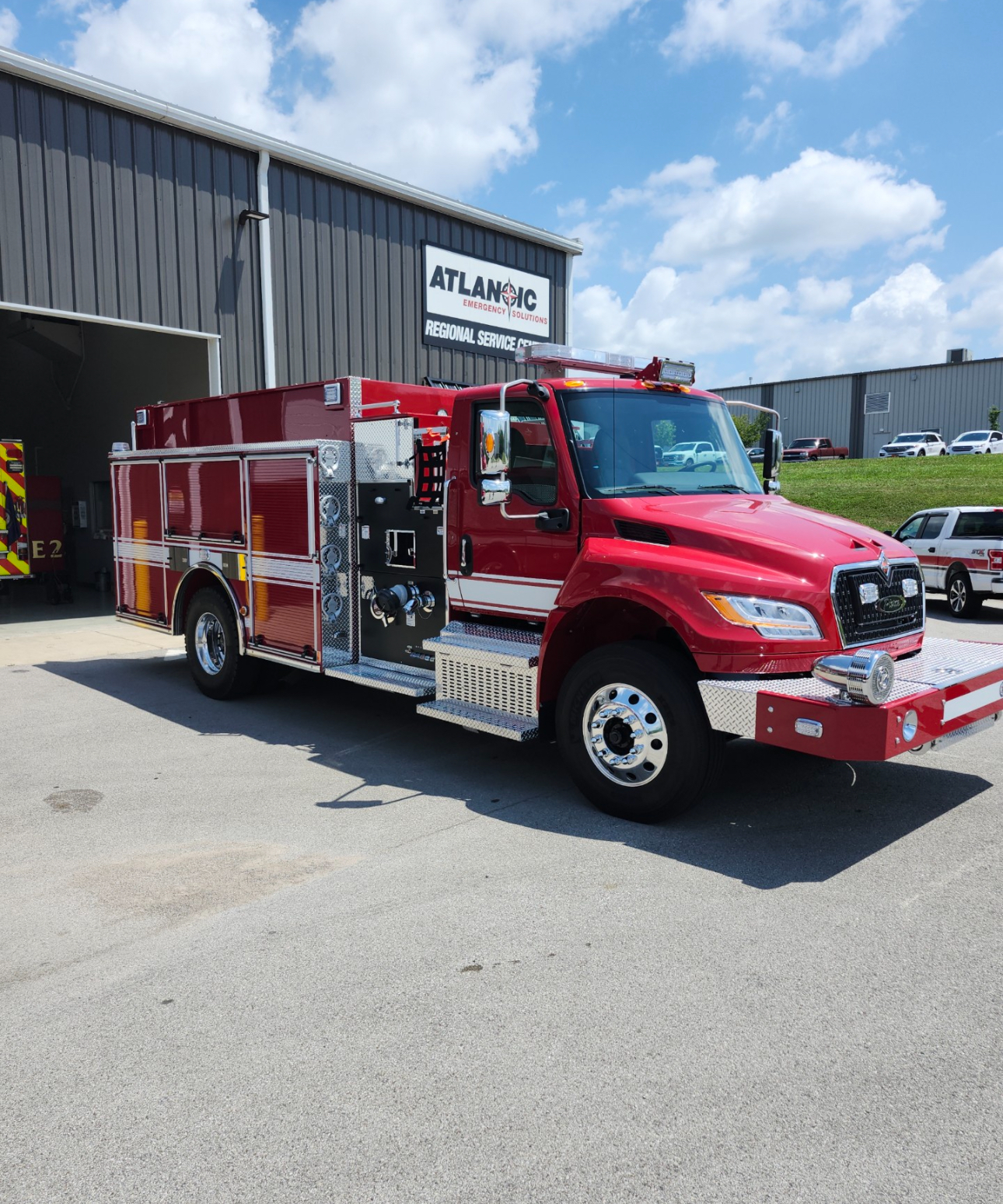Lincoln Co. going back to paper ballots
Published 10:45 am Thursday, February 27, 2020
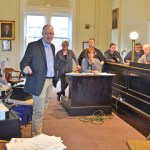
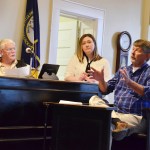
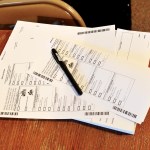

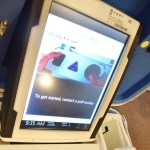
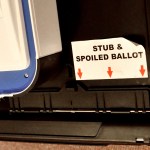
|
Getting your Trinity Audio player ready...
|
STANFORD — When Lincoln County voters roll into the precincts to cast their ballots in the upcoming May primary, they will encounter a new way to vote: on paper ballots.
The Lincoln County Fiscal Court voted 3-0 Tuesday to approve a voting machine vendor that uses a combination of paper and electronic equipment to record votes.
Trending
Magistrates Lonnie Pruitt, Jeff Ruckel and Joe Stanley voted to accept Harp Enterprises Inc.’s bid of $122,084 for 11 Verity Scan digital ballot scanners and 10 ADA-compliant Verity Touch Writers. The court voted twice on approving Harp. The magistrates initially approved the company’s bid of $113,293.90 for 10 scanners and nine touch writers then, when asked by Lincoln County Clerk George O. “Sonny” Spoonamore IV to up the number to 11 and 10, they approved the change.
With the new paper-trail election system, voters will mark their choices with a pen on a paper ballot, then they will cast their votes by scanning the ballot into the digital scanner. Ballots that are fed through the machine will be retained in a locked bin beneath it so, if there’s any question about election results, the paper copies can be retrieved and checked.
Voters can still use touch screen voting if they wish, with the Verity Touch Writers available to all voters. The writers, which include a tethered controller which can be placed wherever it is easiest for the voter to use, allow voters to cast their votes and review the vote summary before printing their ballot. The votes would not be recorded until the ballot was printed and then scanned into the digital scanner.
With the May primary just around the corner, Spoonamore came before the court saying, “If we’re going to do something, we need to do it now.”
The original bid from Harp was for $212,000 but included 18 machines. There are only two companies which sell the voting machines which are approved by the Kentucky State Board of Elections. The other company is Election Systems & Software (ES&S), which the county has used with its current voting machines. ES&S submitted an original bid of $155,000, also for more machines, but reduced its bid to $90,898 for 10 scanners and nine ballot marking devices. The court and local election officials saw demonstrations from both companies in previous meetings.
“I think we’ve given this our due diligence by all means,” Lincoln County Judge Executive Jim W. Adams Jr. said. “Mary (Hopkins, County Treasurer) has done a spreadsheet comparison. She knows better how to compare these than we do.”
Hopkins detailed the breakdown of the costs of the Harp touch writers and scanners and the ES&S ballot marking devices and scanners and the projected annual costs over four years.
“They’re going to be expensive no matter which way you go with them, but they are much less than the initial prices with more locations,” Hopkins said. “Sonny has done a lot of work to get the numbers down to make this a more palatable price for the court to be able to afford.”
Stanley, Magistrate District 4, was relieved to see the lower numbers.
“I appreciate what you have done,” he said to Spoonamore. “When I was first looking at this I was thinking, this is awful. This is much better.”
Spoonamore admitted there is a question as to whether precincts can share a scanner.
“Even when you combine them, there’s still a grey area with the state whether you can put one scanner in with two precincts,” he said.
“We’re willing to have that fight, though,” County Attorney Daryl Day interjected. “This is going to be so expensive that I’ll bet you there are a lot of counties that are going to do this. Didn’t they say Fayette County was already doing this? They had one scanner for two or three precincts voting.”
In addition to the cost of the voting devices, Hopkins’ bid comparison included service costs (annual maintenance fees), election costs for election years, total annual costs for both election and non-election years then the projected annual cost over four years.
• Service Costs: Harp does not charge any maintenance fee; ES&S charges a fee of $8,112.50.
• Election Costs: Harp estimates $26,000 to $30,000/year for programming machines, support and printing; the ES&S election costs were at $12,300 (estimated $3,500 + $.24/ballot printing for primary; $4,000 + $.24/ballot printing for general election – figuring 10,000 ballots per election).
• Total Annual Costs Election Years: Harp’s $26,000 to $30,000; ES&S, $20,412.50.
• Total Annual Costs Non-Election Years: Harp, $0; ES&S, $8,112.50.
• Projected Annual Costs Over Four Years: Harp, $78,000 to $90,000; ES&S, $69,350.
Hopkins noted that Harp was giving the county the first year’s election free.
Before Hopkins had presented her comparisons to the court, Day turned to Spoonamore and said, “Before anybody looks at numbers, can I ask a question? Is there a system you prefer over the other?”
“Well, ES&S has been here for years but, when I needed assistance, I didn’t get any,” Spoonamore answered. “So, probably right now, Harp … And they’re local. They’ve got an office in Nicholasville.”
Spoonamore pointed out that both companies set up the machines and print ballots, but Hopkins stressed that ES&S had two different size ballots (ballots on the ballot marking device were half the size of the pen marked ballots) and all of Harp’s ballots look alike.
“I didn’t want to say it when he (Rob Wiebusch of ES&S) was here that day, but that worried me,” Day said. “That’s not a problem if you have three or four other people come in and want to vote on that machine. But if the only person that votes on that machine at that location that day is in a wheelchair, you know exactly how he voted because his is going to be on the half sheet of paper where everybody else is on a whole sheet. If somebody wanted to do something underhanded, they could get into one of those machines and say we know who he voted for.”
“That bothered me with them saying that’s okay. That’s no different, to me, than you setting up the old machine and everybody that’s not handicapped votes on a new machine and, if you are, you vote on the old one. There’s something wrong with that. Everybody’s (ballot) should look the same.”
As discussion continued on approving the purchase of new voting machines, Pruitt, Magistrate District 2, said he felt the move was “going backward.”
“I feel like we’re going backward a little bit because, when we got digital, we thought we were moving up,” he said. “I look at my cash registers and I’ve got a printer on my cash register that doesn’t cost much money. If they could have put printers on the ones we’ve got now that shoot a little piece of paper out that shows what you voted for instead of going through all this here …”
“But 10 years ago (when the current machines were purchased), paper was bad because everybody thought about Florida and the hanging chads,” said Day. “Paper was horrible. Nobody wanted paper.”
Lincoln County has no option but to go to paper-trail voting machines since the state now requires every county to have voting machines with a permanent paper record. With the numbers before the court, Adams opened the floor for a motion on which vendor to accept to meet the statutory requirement.
“At the end of the day, we have elections every three out of four years. The cost for the four-year period is going to be nearly the same,” he said. “So the initial cost is the only …. And if you’re talking about 10 years, that is how long we’ve had our current machines. If we’re talking about a $10,000-$15,000 difference to make our clerk feel more comfortable and to have someone local if we need to go pound on someone’s desk, I can’t see where that’s not money well spent. There’s no way to really tell with any degree of certainty which one is the lowest bid. You won’t know for four years when you get through the process. “
“It’s a guess,” said Spoonamore.
When it comes to paying for the machines, Adams questioned how the county wanted to deal with the purchase.
“When we set our budget, we have line items that we set monies up to expend out of, reserve for transfer is one of those. Because of some of our purchases this year, i.e. the Fields property and some other things, we usually keep that line item pretty small compared to our overall budget. So, if we pay for these machines outright, we’re going to get that down to an uncomfortable number left to spend on things that pop up,” he said. “Mary and I have discussed this at length. She has talked to KACo (Kentucky Association of Counties) about borrowing money on a short-term basis.”
Hopkins said that she had talked with Lonnie Campbell of KACo and he said they could offer a 3.6 percent rate over five years with no closing cost. She had also asked if there would be an early payment fee if the loan is paid off. She said she didn’t believe there was but that she didn’t have it in writing.
“When budget time rolls around, we will budget to pay off the loan to save three years of interest,” said Adams. “Don’t get alarmed. We’re not in any kind of financial straits. This is a budget issue. You have to stay within your budget or, as Mary has explained to me, it’s illegal to go above what you have budgeted to spend, even though you’ve got plenty of money. If you go above that without an inflow of unexpected cash to match your unexpected expenses then you’re out of budget and it’s illegal.”
While the $103,000 in excess fees that Spoonamore turned over to the court earlier in the meeting was newly received and would have been a nice payment toward the machines, it was not new money since excess fees are already built into the budget.
Adams informed the court that grant money may be available to help with the purchase of the machines. It is estimated that Kentucky will receive $5.1-million in federal funding to cover the cost of voter marked paper ballots.
Hopkins and Spoonamore said they had already applied for the grant if monies become available.
“Our application is in – we’re in line,” said Spoonamore.
Stanley made the motion to approve buying Harp machines and to borrow money from KACo to pay for them. Pruit seconded the motion.
In other business
The council took the following action during the meeting::
• Accepted a bid of $17,447 ($16,000 mowing – $1,447 trimming) from Johnson Mowing to do the mowing and trimming at Veterans Park for 2020. Johnson had the bid the previous year. The court received three bids. Justin Poynter Mowing submitted a bid of $26,850 ($23,000 mowing – $3,850 trimming) and Pingleton Mowing submitted a bid of $23,500.
• Approved appropriation transfers under General Fund reserved for transfer. Included in those transfers were: $1,600 for Lincoln County Courthouse improvement and repair; $10,804.81 to Audit Services for Sheriff’s audit; Jail Emergency Response Team $890 to office equipment and $700 to building maintenance; and under Parks Liability Insurance, $500 to Parks building maintenance.
• Approved budgeted cash transfer from Occupational Tax Fund, $16,000 to Parks and Rec’s Fund.









